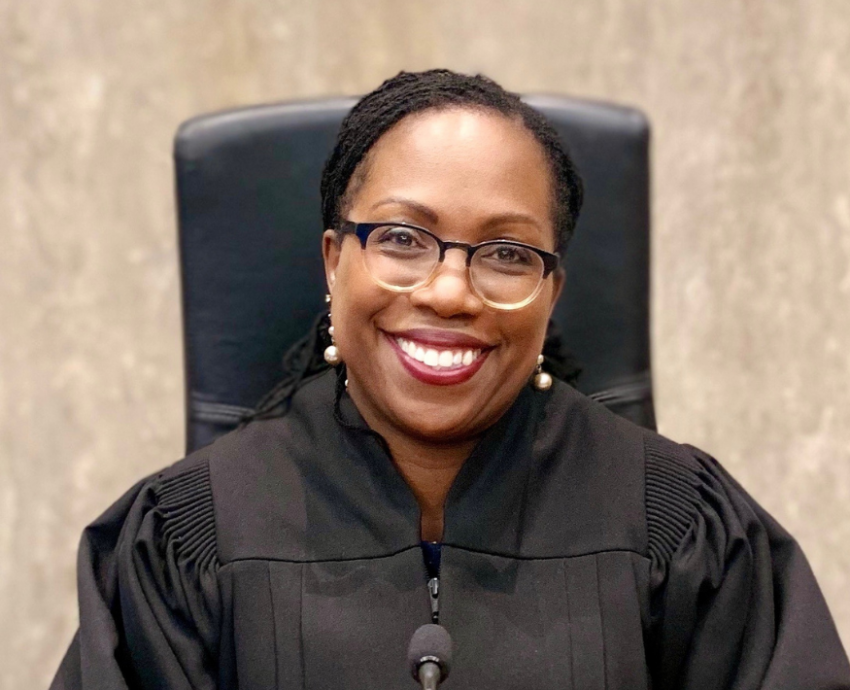
Following a deadlock on the Judiciary Committee, the United States Senate confirmed Judge Ketanji Brown Jackson as the 116th justice of the Supreme Court on April 7. Jackson will become the first Black woman to serve on the court since it was established 233 years ago.
The vote was 53 to 47, with only three Republicans voting in favour of her appointment.
Jackson will take her seat later in the year, replacing Justice Stephen Breyer. At 51 years of age, she could serve for decades. However, her vote will not change the 6 to 3 conservative majority that includes three members anointed by former president Donald Trump.
Jackson’s confirmation is both historic and a warning.
The process and actions of the eleven Republicans on the Judiciary Committee revealed the depth of political and social racism in the US. The extreme-right-controlled Republican Party aims to roll back social progress on racial relations through legislation and other means.
Republicans reject bipartisanship on most issues, including judicial nominations that meet previous judicial standards. White chauvinist ideology and a rejection of a multiethnic, multicultural country are now mainstream in Trump’s Republican Party.
Demonisation and racism
The openly racist and belligerent tone of Republicans on the Judiciary Committee was clear a few days before Jackson’s hearings began.
Republican senator Josh Hawley served notice that he intended to question Jackson about what he characterised as her “alarming pattern” of issuing overly lenient sentences to defendants convicted of child pornography offences. Hawley's tactic is straight out of QAnon’s playbook.
Hawley and several other Republican senators on the Judiciary Committee, including Ted Cruz and Tom Cotton, continued this demonisation at Jackson’s hearing, seeking to portray her as “soft on crime” and a radical.
Cruz pressed Jackson to weigh in on other social and academic issues of interest to conservative and racist voters, including “critical race theory”, the academic field that studies racial bias in legal institutions and legislation.
Republican senator Marsha Blackburn — invoking the issue of transgender athletes in women’s sports — asked Jackson to define the word “woman”.
For the most part, the eleven Democrats on the committee sat on their hands. The chair rarely called the Republicans to order and let them ride roughshod over and bully Jackson.
The only Black Senator on the committee, Democrat Rory Booker, aggressively defended Jackson, bringing her to tears with an emotional speech praising her “grit and grace”.
Booker told Jackson, “Nobody’s going to steal that joy” from her nomination. “You have earned this spot.”
Booker’s intervention shows why it is necessary to raise African American representation in the Senate — currently at 3% — given African Americans make up 14% of the population.
The vote
After the Judiciary Committee was deadlocked 11‒11, the Democrats used a procedural rule to move Jackson’s nomination to the full 100-member Senate.
Following Senate tradition, senators rose one by one to vote, as the clerk called their names. Because the names were called in alphabetical order, Senator Raphael Warnock — an African American Democrat from Georgia — cast the 50th vote for Jackson and Democrat Senator Elizabeth Warren cast the crucial 51st vote.
According to Senate tradition, the men wear suits and ties. However, showing contempt for Jackson, Republican senator Lindsey Graham took off his shirt and tie and voted from the Republican cloakroom, as did several other senators.
Republicans’ talking points at the hearings showed their rightward shift toward openly anti-democratic and racist ideology, and the continued shift to conspiracy propaganda by Trump and his extremist base.
For example, Trump’s acknowledgement of the influence of the secretive QAnon is no longer considered an outlier.
One step forward, but…
Why are there so few Black people on such an important legislative body? Only 11 have ever served on the US Senate, and many for less than a full term.
Jackson will be only the third Black Supreme Court justice. Modern day Supreme Court justices generally serve on lower courts first. However, diversity on state courts is minimal.
“People of color make up 17% of the judges on the 50 state supreme courts,” wrote Jessica Gresko in the Associated Press on April 22, “but as of last year, 22 states had high courts where no member identified as a person of color, according to the Brennan Center … In 11 of those states, minorities make up at least 20% of the population.”
“About 30% of all federal judges, meanwhile, identify as people of color.
The Brennan Center's Madiba Dennie told Gresko she is wary of people thinking that Jackson's confirmation means: “We did it. We have a Black woman on the Supreme Court now.”
There’s more work to be done, said Dennie, with “huge disparities” throughout federal and state judiciaries.
Gresko noted that “the history of Black women serving on their state's highest court goes back to 1988 when Juanita Kidd Stout joined Pennsylvania's highest court”, only to retire one year later when she reached the mandatory age.
“Today, the four men and three women on Pennsylvania's highest court are all white.”